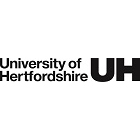- Home
- Search
- Architectural Association School Of Architecture
- Emergent Technologies and Design MArch
Emergent Technologies and Design MArch
Course options
-
Qualification
MArch - Master of Architecture
-
Location
Architectural Association School Of Architecture
-
Study mode
Full time
-
Start date
15-SEP-25
-
Duration
16 months
Course summary
The Emergent Technologies and Design programme is open to graduates in architecture and engineering who wish to develop skills and knowledge in architectural design science within new production paradigms.
We investigate new synergies of architecture and ecology through the critical intersection of computational design and fabrication. Our focus is on exploring the experiential and social potentials of new material and spatial configurations for architectural and ecological urban designs, situated in the dynamic contexts of emerging biomes. The programme is designed to stimulate critical thinking through research-driven design projects that are developed in an intellectually rigorous and creative studio environment. Our projects are developed by multiple iterations through hypothesis, material and computational experimentation, robotic fabrication and evaluation; reflected upon in verbal presentations and group discussions; and documented in analytical and scientifically structured papers.
Design research is central to the agendas of Emergent Technologies and Design. The programme proceeds from the fundamental premise of a shared understanding between staff, students, researchers and collaborators across the world that nature and artifice are strongly coupled, that the cultural production of artefacts and systems exist as part of the environment of other active systems, and that they are subject to change. We also share an understanding that causality of change is complex and multi-scalar, and the dynamics of change are perturbed and accelerated by human activities; coupled together, these cause changes to society and the natural world. Design processes in this domain are developed through iterative computational processes of serial experimentation and analysis, generative propositions and simulations.
The programme has two distinct phases: the Studio and the Dissertation, which are both aligned and supported by the research of the course and the advanced expertise of our alumni and colleagues in practice and the industry. The courses are structured to provide skills and knowledge of a coherent set of linked and convergent discourses, methodologies and concerns that cross multiple disciplines in the Studio, and the opportunity to further develop those skills and deepen knowledge in the Dissertation course.
Application deadline
24 January 2025
Modules
Tuition fees
- Hong Kong
- Afghanistan
- Albania
- Algeria
- Andorra
- Angola
- Antigua & Barbuda
- Argentina
- Armenia
- Australia
- Austria
- Azerbaijan
- Bahamas
- Bahrain
- Bangladesh
- Barbados
- Belarus
- Belgium
- Belize
- Benin
- Bhutan
- Bolivia
- Bosnia and Herzegovina
- Botswana
- Brazil
- Brunei
- Bulgaria
- Burkina Faso
- Burma
- Burundi
- Cabo Verde
- Cambodia
- Cameroon
- Canada
- Central African Republic
- Chad
- Chile
- China
- Colombia
- Comoros
- Congo
- Congo (Democratic Republic)
- Costa Rica
- Croatia
- Cuba
- Curacao
- Cyprus
- Czech Republic
- Denmark
- Djibouti
- Dominica
- Dominican Republic
- East Timor
- Ecuador
- Egypt
- El Salvador
- England
- Equatorial Guinea
- Eritrea
- Estonia
- Ethiopia
- Fiji
- Finland
- France
- Gabon
- Gambia
- Georgia
- Germany
- Ghana
- Greece
- Grenada
- Guatemala
- Guinea
- Guinea-Bissau
- Guyana
- Haiti
- Honduras
- Hungary
- Iceland
- India
- Indonesia
- Iran
- Iraq
- Israel
- Italy
- Ivory Coast
- Jamaica
- Japan
- Jordan
- Kazakhstan
- Kenya
- Kiribati
- Korea DPR (North Korea)
- Kosovo
- Kuwait
- Kyrgyzstan
- Laos
- Latvia
- Lebanon
- Lesotho
- Liberia
- Libya
- Liechtenstein
- Lithuania
- Luxembourg
- Macedonia
- Madagascar
- Malawi
- Malaysia
- Maldives
- Mali
- Malta
- Marshall Islands
- Mauritania
- Mauritius
- Mexico
- Micronesia
- Moldova
- Monaco
- Mongolia
- Montenegro
- Morocco
- Mozambique
- Namibia
- Nauru
- Nepal
- Netherlands
- New Zealand
- Nicaragua
- Niger
- Nigeria
- Northern Ireland
- Norway
- Oman
- Pakistan
- Palau
- Palestinian Authority
- Panama
- Papua New Guinea
- Paraguay
- Peru
- Philippines
- Poland
- Portugal
- Puerto Rico
- Qatar
- Republic of Ireland
- Romania
- Russia
- Rwanda
- San Marino
- Sao Tome and Principe
- Saudi Arabia
- Scotland
- Senegal
- Serbia
- Seychelles
- Sierra Leone
- Singapore
- Slovakia
- Slovenia
- Solomon Islands
- Somalia
- South Africa
- South Korea
- South Sudan
- Spain
- Sri Lanka
- St Vincent
- St. Kitts & Nevis
- St. Lucia
- Sudan
- Suriname
- Swaziland
- Sweden
- Switzerland
- Syria
- Taiwan
- Tajikistan
- Tanzania
- Thailand
- Togo
- Tonga
- Trinidad & Tobago
- Tunisia
- Turkey
- Turkmenistan
- Tuvalu
- UAE
- Uganda
- Ukraine
- United Kingdom
- United States
- Uruguay
- Uzbekistan
- Vanuatu
- Vatican City
- Venezuela
- Vietnam
- Wales
- Western Samoa
- Yemen
- Zambia
- Zimbabwe
£ 40,777per year
Tuition fees shown are for indicative purposes and may vary. Please check with the institution for most up to date details.
University information
-
Campus address
Architectural Association School Of Architecture, 36 Bedford Square, Camden, London, Greater London, WC1B 3ES, England





